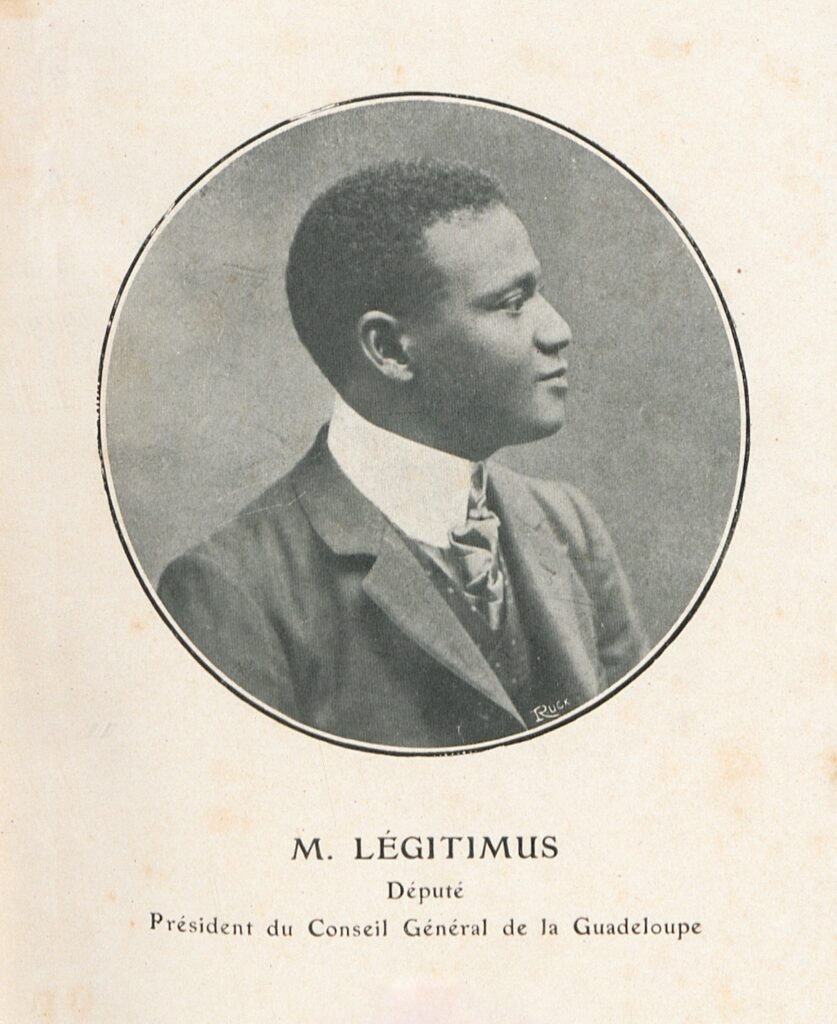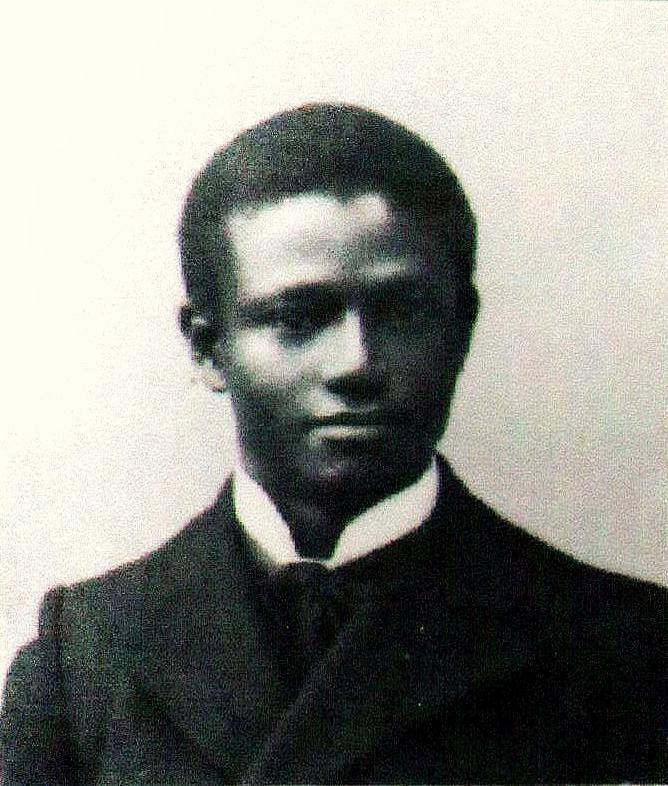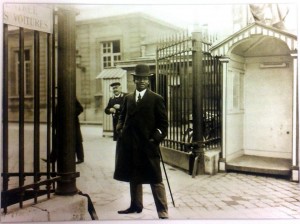
In 1992 he began to study his roots (as the worthy great-grandson of Hégésippe Jean Légitimus, the first Black elected deputy in history) and discovered a passion for human rights, especially those of minority groups.


Hégésippe Légitimus devant le Palais Bourbon. (circa 1930)
HEGESIPPE JEAN LEGITIMUS HOMMAGE
French politician.
Born on April 8, 1868 in Pointe à Pitre (Guadeloupe)
Died on November 29, 1944, Angles-sur-l ‘ Anglin (Vienna)
Son of a daily marine fisherman who disappeared at sea in Pointe-à-Pitre Bay and an agricultural worker of Marie-Galante, he was one of the few black people to access secondary education at the Carnot de Pointe-à – Pitre thanks to a scholarship.
Deputy, general adviser, and mayor of Pointe-à-Pitre, chief founder of the socialist movement of Guadeloupe, he marked heavily the French political life at the beginning of the twentieth century when he was called Jaurès Noir.
He was the first black person to sit in the parliamentary assembly since 1848 alongside Jules Guesde, Jean Jaurès, and Leon Blum, of whom he was a friend and one of the youngest French deputies, aged 30 at the time of his election.
Freemason at the lodge ′′ Les Trinitarians ′′ at the Order of Paris and founder of the lodge ′′ Les Egalitarians ′′ at the Order of Pointe-à-Pitre, he could start politics in a context where a lodge called Disciples d ‘ Hiram was created in 1836 and while political rights were granted to ′′ men of free color ′′ in 1831
Hegesippe Legitimus was elected deputy for Guadeloupe in 1898, the youngest deputy – at 30- and first black Guadeloupean deputy under the Third Republic.
He lost his seat in 1902 and reunited him from 1906 to 1914, became president of the general council in 1899 first black to assume this function, and was elected mayor of Pointe-à-Pitre in 1904.
A socialist movement took shape in the late century. He was represented by the Guadeloupean Socialist Party of which Hegesippe Legitimus was one of the founders. Founder of the Workers’ Party of Guadeloupe, he created the newspaper Le Peuple in 1891, where he signed prominent texts like ′′ Great whites, great mulaters, great niggas “, or ′′ Niggas forward “. This party, being the first to defend workers and blacks, quickly became popular.
He attacked the almost monopoly of emulators in local politics, who were accused of acting at the expense of black people. But, for economic reasons, Legitimus was forced to reach an agreement with the industrialists, the capital-labor alliance, which won him many criticisms, for example in ‘To my Black Brothers and by the popular press that broke out in racist cartoons when he arrived in metropolis (see attached pictures).
Yet he was considered for a quarter of a century as the spokesperson of the black world, nicknamed him ′′ the black jaurès “. By opening the doors of secondary and higher education to black people, he actively promoted the social and political empowerment of the world black. He supported Guadeloupe’s complete political and administrative assimilation.
He becomes ′′ a living legend of Guadeloupean memory ′′
Invited in 1938 to be made a knight of the Legion of Honour, he was held in France against his will because of the declaration of war, and died on November 29, 1944, in Angles-sur-l ‘ Anglin in Vienna, where he was buried on 3 December.
His official national funeral took place after the repatriation of his remains to Guadeloupe, at Pointe-à-Pitre on April 2, 1947, on a proposal from General de Gaulle, President of the Council, and under the responsibility of Jean Sainteny, delegate of government, member of the constitutional council.
He is currently buried in this town cemetery, the beginning of the central driveway, near the bus station entrance.
( more in his Wikipedia bio )

